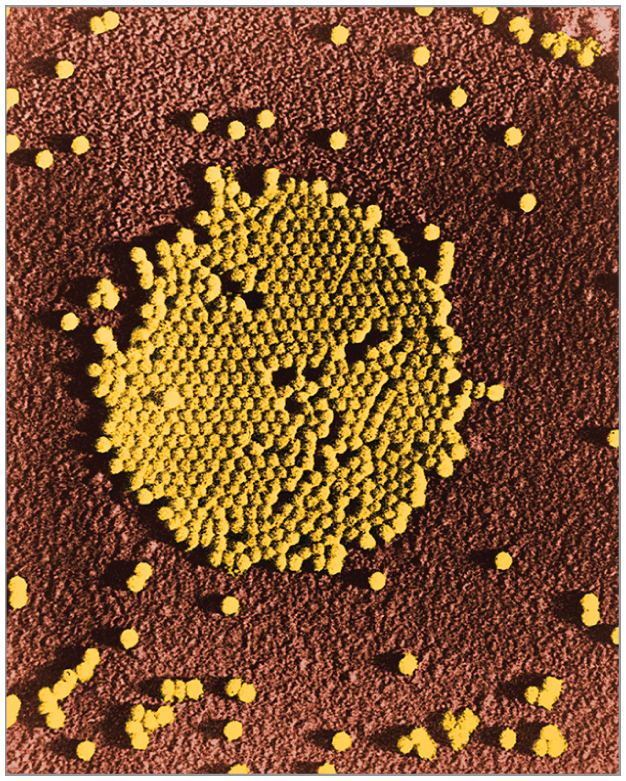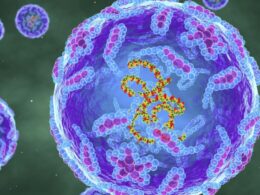health transformation institute
virus transformation unit
Joaquim Cardoso MSc
Senior Advisor and
Chief Researcher & Editor
January 16, 2023
EXECUTIVE SUMMARY
The CDC announced it is expanding targeted wastewater testing for poliovirus to help identify communities that would benefit from polio vaccination campaigns.
- The expanded testing will target communities with low polio vaccination rates or communities with ties to the case in Rockland County, New York, and will last for at least 4 months.
- The Michigan Department of Health and Human Services and the Philadelphia Department of Public Health are among the first locations to explore plans to start collecting wastewater samples in specific communities for analysis at the CDC’s polio laboratory.
- The move comes after a case of paralytic polio in an unvaccinated person in Rockland County was reported to the CDC in July 2022.
- The poliovirus detected in the patient’s samples was type 2 vaccine-derived poliovirus that was genetically related to environmental samples from Israel and the UK.
DEEP DIVE

CDC to Expand Wastewater Testing for Poliovirus
JAMA Network
Bridget M. Kuehn, MSJ
January 10, 2023
The CDC announced it is expanding targeted wastewater testing for poliovirus to help identify communities that would benefit from polio vaccination campaigns.
A case of paralytic polio in an unvaccinated person in Rockland County, New York, was reported to the CDC in July 2022.
The poliovirus detected in the patient’s samples was type 2 vaccine–derived poliovirus that was genetically related to environmental samples from Israel and the UK, according to a statement from the Global Polio Eradication Initiative (GPEI).
The CDC’s expanded wastewater testing will target communities with low polio vaccination rates or communities with ties to the case in Rockland County and will last for at least 4 months.
The Michigan Department of Health and Human Services and the Philadelphia Department of Public Health “are among the first locations to explore plans to start collecting wastewater samples in specific communities for analysis at CDC’s polio laboratory,” the announcement stated.

Low vaccination rates in a community can contribute to the emergence of vaccine–derived poliovirus strains.
The weakened virus used in the oral polio vaccine does not cause illness among vaccinated individuals, but it may be shed in their stool, and in regions with poor sanitation, unvaccinated individuals may become infected.
Unchecked spread among unvaccinated people may allow the weakened virus to revert to a version capable of causing paralysis.
“It is vital that all countries, in particular those with a high volume of travel and contact with polio-affected countries and areas, strengthen surveillance to rapidly detect any new virus importation and facilitate a rapid response,” the authors of GPEI statement wrote.
“It is vital that all countries, in particular those with a high volume of travel and contact with polio-affected countries and areas, strengthen surveillance to rapidly detect any new virus importation and facilitate a rapid response,”
After the case of paralytic polio was detected in New York State, wastewater testing found the same strain in 5 New York counties, which may indicate that the virus is circulating in those communities.
More than 92% of US individuals are vaccinated against poliovirus, making the overall threat to the public low, according to the CDC statement.
However, in communities with low polio vaccination rates, the virus may spread and put unvaccinated individuals at risk of infection.
Identifying poliovirus shedding in wastewater can help public health officials quickly respond to prevent poliovirus-related disease and disability.
“Vaccination remains the best way to prevent another case of paralytic polio,” José Romero, MD, director of the CDC’s National Center for Immunization and Respiratory Diseases, said in the agency’s statement. “[I]t is critically important that people get vaccinated to protect themselves, their families, and their communities against this devastating disease.”
Originally published at https://jamanetwork.com
People mentioned
José Romero, MD, director of the CDC’s National Center for Immunization and Respiratory Diseases








